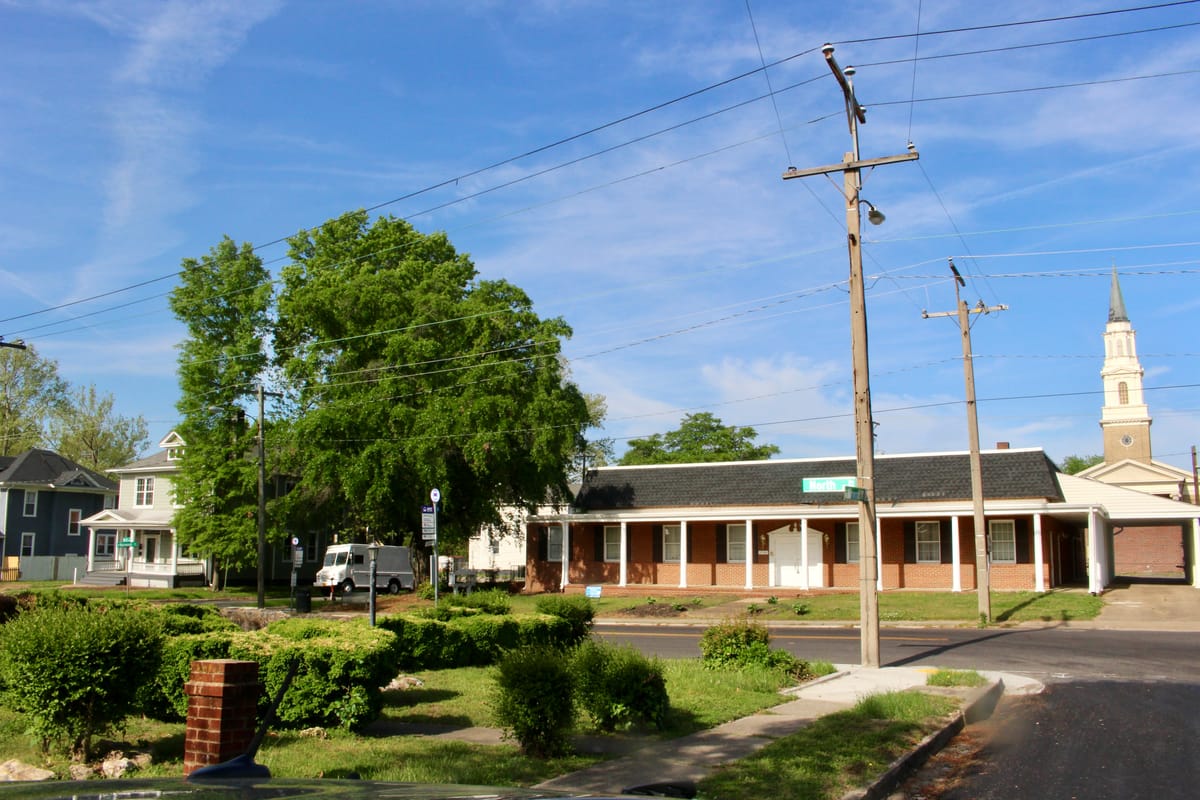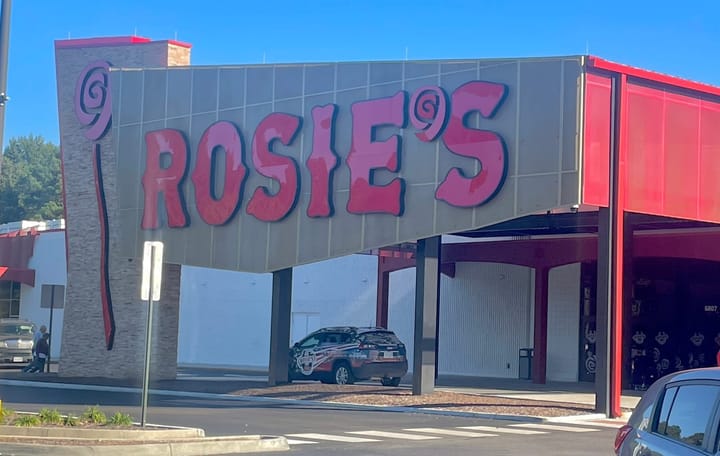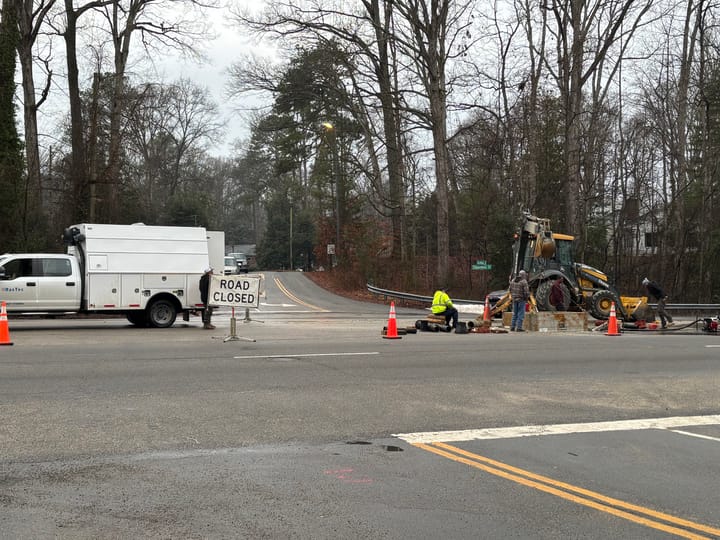Planning commission recommends denial of proposed North Side rehab facility

No matter who was talking about the proposed conversion of an old funeral home complex in Barton Heights into a locked addiction rehab facility, they believed the focus was on the wrong thing.
Neighbors complained photographs of the site, which includes parcels at both 2700 North Ave. and 2701 Garland Ave., obscured the surrounding community and the impacts the plans could have on it.
“If you just pan the camera a little bit, you see residential houses — not just one block; another block, another block,” Bob Paris, a Garland Avenue resident, told the Planning Commission April 15. “Pan it the other way, the same thing. That picture takes away the community. It just looks at this parcel of land in total isolation. And it’s not in isolation.”
But for HYPE Counseling, the mental health and addiction recovery provider proposing the revamp of the site, the neighbors were overlooking the need for the facility and painting the men who would use its services with too broad a brush.
HYPE had concluded, said CEO Kenneth Anderson, “that it wasn’t the presence of a treatment facility that individuals have problems with. It was actually the people receiving treatment in that facility.”
“It's very difficult for us to believe that if we were requesting a special use permit for a facility treating Alzheimer's, dementia, cancer, diabetes or heart disease, that we would have ran across the same level of opposition,” he continued.
That argument got sharp pushback from opponents, several of whom described it as offensive and pointed out the Barton Heights and Battery Park neighborhoods are home to roughly a dozen recovery residences that are certified by the state.
A review of records from the Virginia Department of Behavioral Health and Developmental Services found three such residences within a single five-block stretch of North Avenue where the HYPE facility would sit.
“People who move to this neighborhood move with some intention and understanding of what it’s like to be in an urban neighborhood,” said City Councilor Kenya Gibson (3rd District), who represents the area. “There are other halfway homes in the community.”
The Planning Commission ultimately sided with the neighbors, voting almost unanimously (one member, Burt Pinnock, abstained from the vote) to recommend that the city not approve HYPE’s request to rezone the old funeral home site and authorize the use of the North Avenue building for associated outpatient offices.
“We’re losing 300 people a year in the city of Richmond to opioid addiction. This is higher than any homicide rate, any speeding accident, any other situation. So it really is an issue that we need service providers like yourselves to come to our table,” City Councilor Ellen Robertson (6th District), who sits on the Planning Commission, told HYPE at the April 15 meeting.
But, she went on, “I don’t think the fit works in a residential area such as what we are speaking of.”
The decision will now go to City Council, which has scheduled it for consideration at its April 28 meeting.
In a conversation after the vote, HYPE owner and founder Shiloh Jones said he was still weighing his options, including finding another site for the proposed facility. Under changes to the city’s zoning code in 2021, adult transitional facilities — the classification the city uses for facilities like HYPE has envisioned in Barton Heights — are allowed by right in 10 zoning districts.
“I could fight for it,” he said April 22. Still, he added, “I don’t know that I want to. I’m deciding.”
‘Security’ and ‘stigma’
Under HYPE’s proposal, 2701 Garland Ave. would be repurposed into a locked inpatient facility for up to 25 men facing significant addiction and mental health issues. While the average stay is anticipated to be 30 days and patients would not be allowed to come and go as they pleased on a daily basis, Anderson has emphasized that all men admitted would be there voluntarily.
The adjoining building at 2700 North Ave. would become home to outpatient professional offices that could offer associated services to patients.
“The facility is not a halfway house,” Anderson told the Planning Commission. “We do not receive referrals from correctional facilities or individuals are not mandated to be at our facility by the judicial system. Instead, this is a facility that provides individuals with the care they need to stabilize, recover, and safely return to their families, their jobs, and sometimes the very recovery homes that already exist in the community.”
The establishment, classified as a “level 3.5” facility under criteria developed by the American Society of Addiction Medicine, would be the first of its kind operated by HYPE. Both Jones and Anderson, however, pointed to the organization’s 17 years of experience operating licensed recovery facilities as evidence it would responsibly manage its population.
Neighbors are not convinced. Over 100 have signed on to letters opposing it, and more than a dozen, including four pastors, spoke against it at the April 15 hearing.
“We’re not opposed to adult transitional services,” said Rev. Jeffrey Smith, the pastor of Garland Avenue Baptist, which sits directly across the street from the proposed facility. “However, the location for such intensive services matters. And in this case, the proposed use directly contradicts the character, needs and safety of what we believe exists in our community.”
Besides objections regarding limited communication from HYPE and violations some of its facilities have been issued by the state — problems Anderson claimed were more about “documentation” than “client safety” — neighbors raised particular concerns about the security risks the facility could pose in an area that has seen what one described as a “baby boom” in recent years. The North and Garland avenue parcels are within easy walking distance of three schools — Barack Obama Elementary, Overby-Sheppard Elementary and Community High — as well as the North Avenue Public Library, the Chandler baseball field and Battery Park, all of which are heavily used by children.
If patients decided to leave the facility against medical advice or snuck out, "just the thought of letting my daughter outside — I can’t even come to think of that being a possibility,” said Admir Smajkan, a resident of nearby Hanes Avenue.
More questions remained unanswered, said others. What kind of fencing would the facility have, and what level of security staffing? How would outdoor areas be locked down? What plans were in place for those patients who requested early discharge but had no family nearby?
Anderson and Jones have repeatedly contended those concerns are evidence of unfair stigma people suffering from addiction face. Jones, who grew up in the neighborhood and still owns property there, said he has “just as much of a stake in” Barton Heights as the project’s opponents and insisted he wouldn’t put a facility he thought was a threat in his own area.
“The whole ‘hide your kids’ thing was just crazy to me,” he told The Richmonder. “I feel like it was a not in my neighborhood type of thing. … It was a stigma-based fear, and that stigma-based fear was not rooted in reality.”
Asked by Pinnock why HYPE had selected that location for its plans, Anderson said the organization has “a vested interest in the area.”
“We saw what substance abuse has done to the area, so why not provide the help for the area which individuals need to live?” he said.
Speaking with The Richmonder, Jones disputed the idea that the type of facility HYPE was proposing couldn’t coexist with residences. The Capital Area Health Network offers medical services several blocks up North Avenue, he said, while the Richmond Behavioral Health Authority’s North Campus sits on the edge of a residential neighborhood in North Highland Park about 1.5 miles away.
“It’s really disappointing,” he said before striking a more philosophical note as he considered what might come next. “Sometimes there’s things that are a fortuitous no.”
Contact Reporter Sarah Vogelsong at svogelsong@richmonder.org






